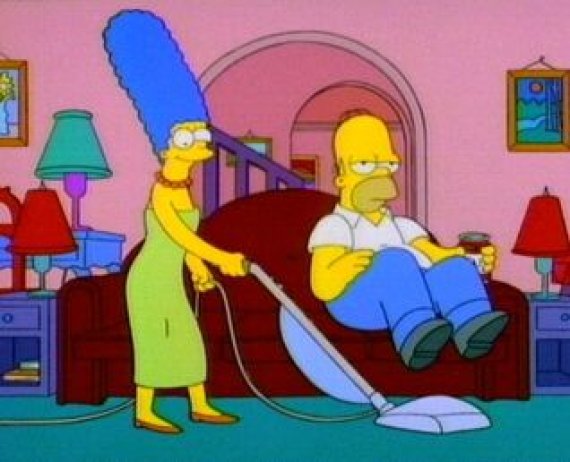This appears from research done by Professor Gerrit Antonides of Economics of Consumers and Households. He studied the answers from about 4,000 household partners in a Nibud (National Institute for Family Finance Information) survey. These show how often they and their partners are responsible for tasks such as cooking, ironing, washing clothes, making beds and cleaning. ‘Partners overestimate the part they play in housekeeping. This is also evident in financial management in the households. Men think that they do most of the financial management in the family, but women say that they are the ones who do that 9 out of 10 times.’ Overestimation of one’s own capacity can also be seen in other research projects, says Antonides. ‘Among chauffeurs, 75 percent feel that they are above average drivers. That’s in fact 50 percent.’
Antonides does not know which of the household partner is right. His aim was to find out which factors determine the division of domestic chores and financial planning in households. Economics theory states that people do less domestic chores as their salaries get higher, as it is more rewarding then to work outside the home than be active in housekeeping. But that doesn’t seem to be what’s happening, says Antonides. ‘Men do not do less housekeeping when they earn more. If the woman has a good education or if she also has a job, then the man is in fact more involved in housekeeping. They would then discuss and re-divide the domestic chores between themselves. This negotiation model is used in households.’
That husband and wife negotiate or argue about domestic chores and expenditures is nothing new. When opinions differ, men often spend more money without seeking the women’s consent, while women often go into a helpless state, but the partners still try to come to some kind of agreement together. And that is rewarding. When conflicts over money increase, there will be more and better planning, says Antonides. As such, negotiating households can make ends meet better than households in which the partners spend their own money in whatever way they like. Households can also manage better if they carry out ‘mental budgeting’, as shown in another research by Antonides. ‘They set up piggy banks in their minds for various expenditure categories. People who do that often are better able to keep within their means. Economics theory does not attach any advantages to this type of budgeting because logically, it does not matter which piggy bank pays for what; however, the mental exercise in constant budgeting gives people a better overview of their expenditures. In households, psychological factors carry more weight than rational economics considerations, adds the professor.

